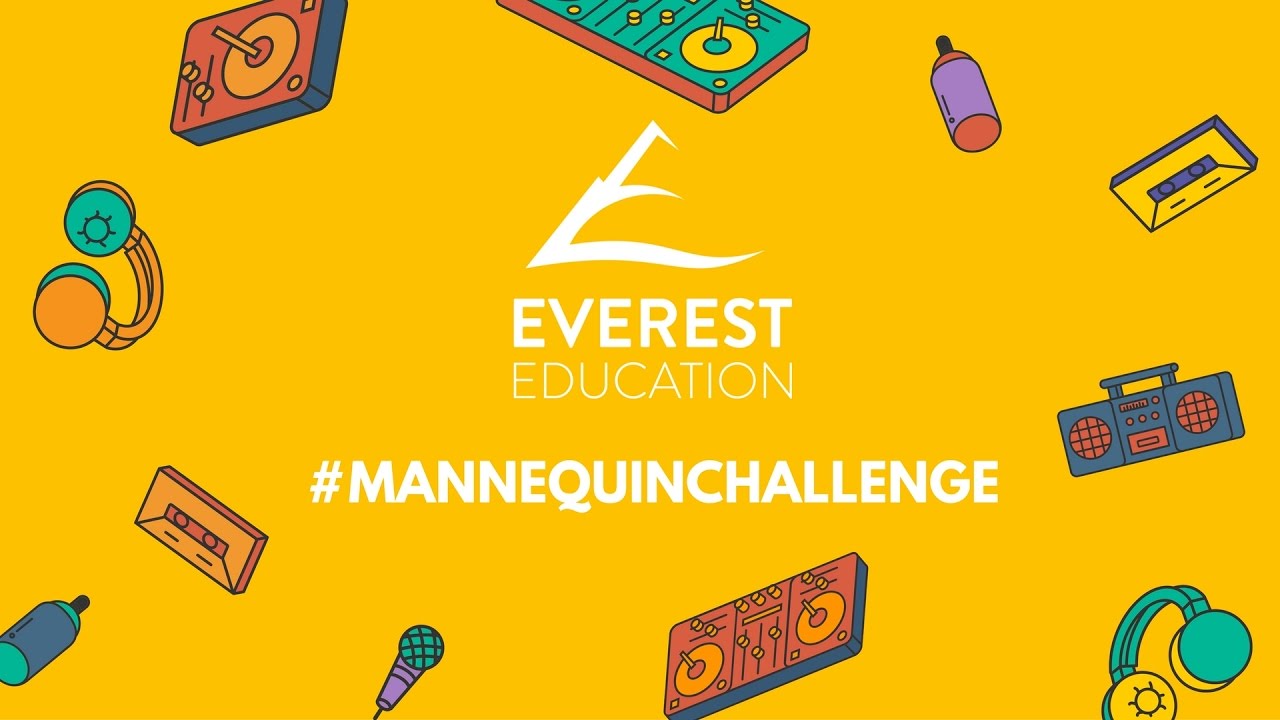1. What is IGCSE?
IGCSE is the abbreviation of the International General Certificate of Secondary Education (IGCSE). It is one of the most recognised qualifications around the world for end of secondary school, equivalent to O-Level, UK GCSE, fifth form or year 11 in respective countries and schools, before a student proceeds to higher education qualifications, such as Advanced Placement, A-Levels program or International Baccalaureate diploma.
>>> Explore most common acronyms used in the US, UK education system
IGCSE courses are renowned for developing vital educational skills, including recall of knowledge, oral skills, problem-solving, initiative, teamwork and investigative skills. The resulting qualification provides a foundation for higher-level courses, such as A-Levels, the Advanced International Certificate of Education, the North American Advanced Placement program and the International Baccalaureate.
IGCSE offers a flexible course of study that gives candidates the freedom to choose subjects that are right for them whilst providing them with a broad knowledge base and lifelong skills.
4. How many subjects does IGCSE offer?
IGCSE offers more than 70 subjects. Students are required to take a minimum of 5 or maximum of 14 subjects. The core subjects are English, Mathematics and Sciences. Students can also choose other subjects ranging from Social Sciences (commonly Accounting, Business Studies, Economics, Sociology) to Arts & Technology (commonly Computer Studies, Information & Communication Technology, Art & Design).
Candidates enter and sit for a minimum of seven subjects selected from the five IGCSE curriculum areas:
- Group 1: Language
- Group 2: Humanities and Social Science
- Group 3: Sciences
- Group 4: Mathematics
- Group 5: Creative, Technical and Vocational
Cambridge ICE is awarded to candidates who pass in at least 7 Cambridge IGCSE subjects, including 2 from Group 1 and 1 from Group 2-5.
5. How is IGCSE taught?
 At school, students are encouraged to study a wide range of subjects at IGCSE level, at the same time. In order to follow a broad and balanced curriculum, many students take courses from each of the IGCSE groups, particularly if they’re aiming to go on to further education. This can lead to the award of the International Certificate of Education – an additional qualification that recognises students who pass exams in seven or more subjects, including two languages and one subject from each of the other groups. However it is also possible to study a free choice of IGCSE subjects.
At school, students are encouraged to study a wide range of subjects at IGCSE level, at the same time. In order to follow a broad and balanced curriculum, many students take courses from each of the IGCSE groups, particularly if they’re aiming to go on to further education. This can lead to the award of the International Certificate of Education – an additional qualification that recognises students who pass exams in seven or more subjects, including two languages and one subject from each of the other groups. However it is also possible to study a free choice of IGCSE subjects.
The syllabus is set by Cambridge, but the exact way it is taught will depend on each school. The course differs for each subject, but throughout there will be a mix of assessment methods, including coursework, practical exercises, oral and listening tests, projects and written examinations.
Frequently Asked Questions
- Why might the IGCSE be a good choice for my child?
The IGCSE is accessible to those of almost all levels of ability. The questions are often differentiated in terms of levels of difficulty to meet the needs of both the most able student as well as those who find academics challenging. Because most assessment takes place at the end of the course, it allows students whose first language is not English more time to learn over the course of the programme before demonstrating their learning at the end. The IGCSE is certainly a good option if you know your child has strengths in assimilating knowledge and demonstrating this knowledge in exam conditions.
IGCSE is also popular among homeschooled students, as it allows students from alternative education and adults students to sit for the exam and continue personal education advancement at any age.
- Does the IGCSE lay good foundations for the higher international education program?
 Yes, the IGCSE is designed to be a preparation for further international study, such as the A-Levels, or IB Diploma Programme, as well as entry to international universities. In fact, we observe that students who have done the IGCSE tend to have a very solid understanding of foundational concepts to build on in the IB DP.
Yes, the IGCSE is designed to be a preparation for further international study, such as the A-Levels, or IB Diploma Programme, as well as entry to international universities. In fact, we observe that students who have done the IGCSE tend to have a very solid understanding of foundational concepts to build on in the IB DP.
It is also considered an advantage of the IGCSE that assessment is held under exam conditions. By contrast, the IB Middle Years Programme (MYP) does not include exams so for MYP students the IB Diploma may be their very first experience of an external exam, a situation in which some students thrive and for which others need to practice.
So, in terms of content knowledge, the IGCSE lays excellent foundations for any higher international program, even if it is IB, AP or A-Level.
- How to choose suitable IGCSE subjects for my child?
Most schools require students to take a minimum of 5 or 6 IGCSE subjects which must include the 3 compulsory subjects of English, Science and Maths. Alongside these ‘core’ subjects, students can choose from a number of different subjects in areas such as arts, humanities, STEM (Science, Technology, Engineering and Mathematics) and sports.
IGCSE subject choices should take into account your child’s interests, her future study and career plans, the subjects she has studied and done well in so far, and of course which IGCSE subjects her school offers.
Parents and students should also consider which subjects your child wants to study at A-level (or pre-university A-level equivalents such as International Baccalaureate or Foundation) and at university.
If she already knows which degree subjects or universities she is interested in, check whether they specify any particular GCSE subject grades in their prerequisites. It’s important to remember that top-ranking universities will consider the quality of the IGCSEs that we have taken rather than the quantity. Taking a smaller number of IGCSEs will not inhibit your chances of a successful application, as long as you achieve strong grades in the subjects that you take.
About Everest Education program
At Everest Education, we have many years of experience providing test prep and tutoring programs for homeschooled students and students from top international schools in Ho Chi Minh city, including BIS, ISHCMC, SSIS, AIS,… Our tutors are experts in math, writing, science, and English – all of the subjects your child needs to master if they’re planning to take the SAT, IELTS, AP, or IB exams. Our test prep courses create customized study plans to get each student the maximum score improvements possible. When facing high-stakes academic exams like these, with Everest Education your child will be equipped with the tools to succeed.
Reference:
https://www.cambridgeinternational.org/
https://www.igcsecentre.com/
https://www.internationalschoolparent.com/articles/what-is-the-igcse-and-is-it-the-right-choice-for-my-child/




 At school, students are encouraged to study a wide range of subjects at IGCSE level, at the same time. In order to follow a broad and balanced curriculum, many students take courses from each of the IGCSE groups, particularly if they’re aiming to go on to further education. This can lead to the award of the International Certificate of Education – an additional qualification that recognises students who pass exams in seven or more subjects, including two languages and one subject from each of the other groups. However it is also possible to study a free choice of IGCSE subjects.
At school, students are encouraged to study a wide range of subjects at IGCSE level, at the same time. In order to follow a broad and balanced curriculum, many students take courses from each of the IGCSE groups, particularly if they’re aiming to go on to further education. This can lead to the award of the International Certificate of Education – an additional qualification that recognises students who pass exams in seven or more subjects, including two languages and one subject from each of the other groups. However it is also possible to study a free choice of IGCSE subjects. Yes, the IGCSE is designed to be a preparation for further international study, such as the A-Levels, or IB Diploma Programme, as well as entry to international universities. In fact, we observe that students who have done the IGCSE tend to have a very solid understanding of foundational concepts to build on in the IB DP.
Yes, the IGCSE is designed to be a preparation for further international study, such as the A-Levels, or IB Diploma Programme, as well as entry to international universities. In fact, we observe that students who have done the IGCSE tend to have a very solid understanding of foundational concepts to build on in the IB DP.








